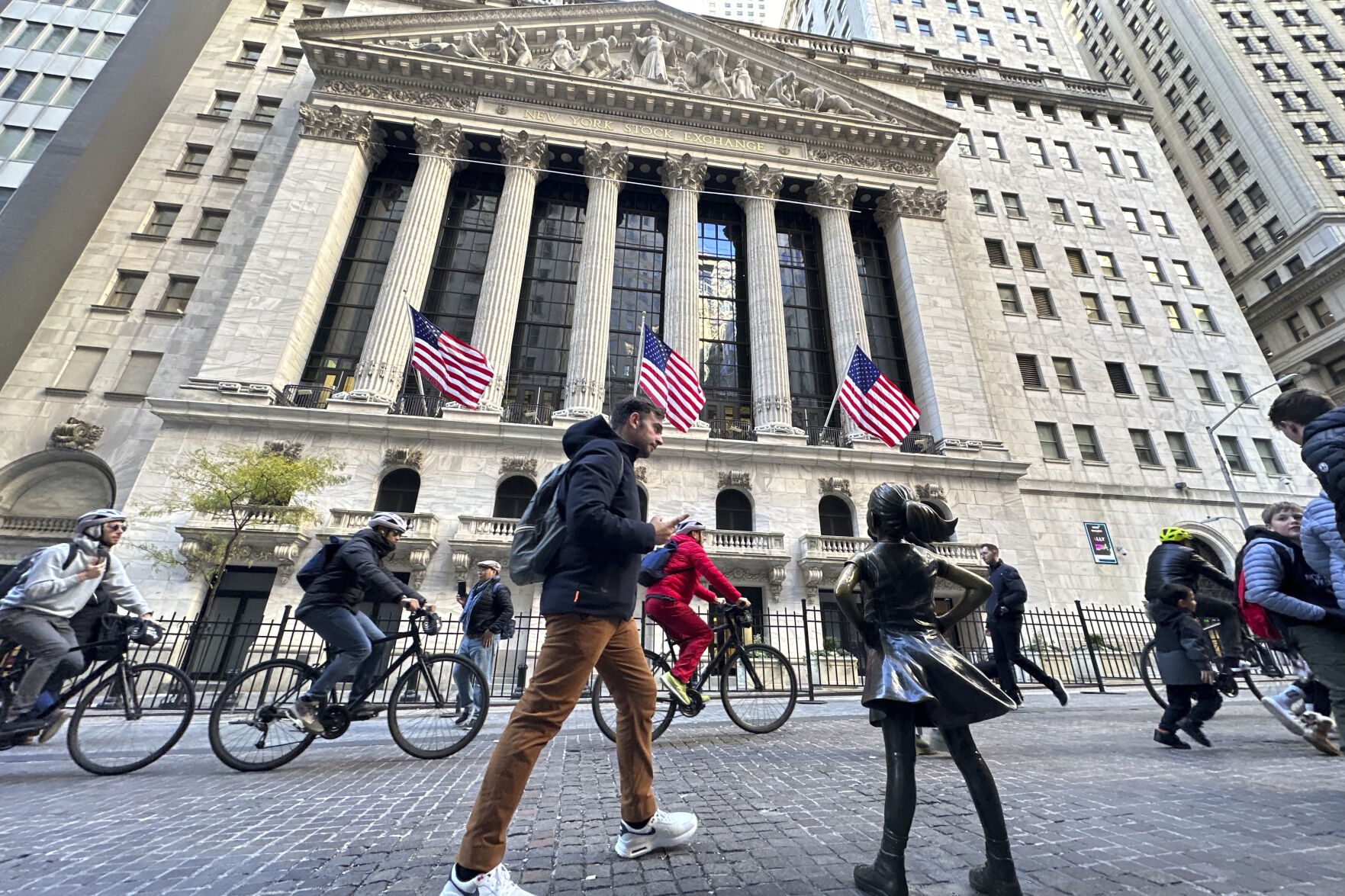NEW YORK — Wall Street is drifting Friday as it nears the close of a mostly quiet week following its fireworks since the summer.
The S&P 500 was edging up by 0.2% in morning trading and on track to end the week nearly flat. That would follow its best week of the year, which itself came after months of sharp losses.
The Dow Jones Industrial Average was up 34 points, or 0.1%, as of 10:35 a.m. Eastern time, and the Nasdaq composite was 0.4% higher.
More companies reported better profits for the latest quarter than analysts expected, but the focus is swinging toward what companies will do later this year and beyond amid high interest rates and expectations for a slowdown in economic growth.
Illumina tumbled 13.7% even though the maker of DNA-sequencing and other technology products reported better results for the third quarter than expected. It cut its financial forecasts for the full year and said “the environment remains challenging.”
Wynn Resorts also topped analysts’ expectations for the latest quarter, but its stock fell 7.7% amid concerns about some weaker trends underneath the surface in Macao.
On the winning side of Wall Street was Hologic, which rose 6.6% after the maker of diagnostics and other products focused on women’s health reported better profit than expected. Doximity was another winner, up 11.7% after it likewise reported stronger profit than forecast.
Such earnings reports have helped to support the stock market, but the main driver recently has been what’s been happening in the bond market.
Treasury yields gave back some of their gains from the prior day to release some of the pressure that’s built up on Wall Street. The yield on the 10-year Treasury dipped to 4.60% from 4.64% late Thursday.
A jump in yields on Thursday had knocked stocks lower to break an eight-day winning streak for the S&P 500, one of its longest in the last two decades. High interest rates and yields hurt prices for stocks and other investments, while slowing the economy broadly and raising the pressure on the financial system.
Thursday’s rise in yields came after Fed Chair Jerome Powell dashed some of the hopes building among traders that the Federal Reserve may finally be done hiking its main interest rate. He said Thursday that no decisions on rates have been made yet and that the Fed “will not hesitate” to raise them again if inflation doesn’t appear to be heading back to its 2% target.
The central bank has been saying that its next moves will depend entirely on what incoming data about inflation and the economy say.
A report on Friday morning caused yields to wobble after it suggested U.S. consumers are girding for higher inflation. They’re preparing for inflation of 4.4% in the year ahead, according to a preliminary report from the University of Michigan. That’s the highest level since a year ago. Their expectations for inflation over the long run also rose to the highest since 2011.
The Federal Reserve has said it wants to keep such expectations low because they otherwise could lead to a vicious cycle that keeps inflation high. The yield on the two-year Treasury, which tends to track expectations for the Fed, quickly popped back to 5.02% after briefly dipping below 5% before the report’s release.
The 10-year yield also pared its drop following the report, which caused stock indexes to pare their gains.
But the report also suggested overall sentiment among consumers is weakening more than economists expected. That could put undercut strong spending by consumers, which has kept the economy strong recently but also added upward pressure to inflation.
The Fed has been on hold recently with its overnight interest rate after yanking it above 5.25% to its highest level since 2001 from nearly zero.
In stock markets abroad, indexes were lower across most of Europe and Asia to follow up on Wall Street’s losses from a day before.
In the oil market, crude prices regained some more of their sharp losses from earlier in the week. A barrel of benchmark U.S. crude rose 1.3% to $76.69. Brent crude, the international standard, added 1.4% to $81.10 per barrel. Both remain down by more than 4% for the week on worries about supplies outstripping demand.
A financial services business of China’s biggest bank, ICBC, said it was hit this week by a ransomware attack that reportedly disrupted trading in the U.S. Treasury market.
New York-based Industrial and Commercial Bank of China Financial Services handles trades and other services for financial institutions. It said it had isolated affected systems and that trades had cleared by Thursday. It was unclear how much of an impact the attack had on Treasury market trading.
___
AP Writers Zimo Zhong and Matt Ott contributed.


